Empowered: How Lynchburg’s Employee-Owned Businesses Transform the Lives of Workers and their Companies
By Robin Sutton Anders
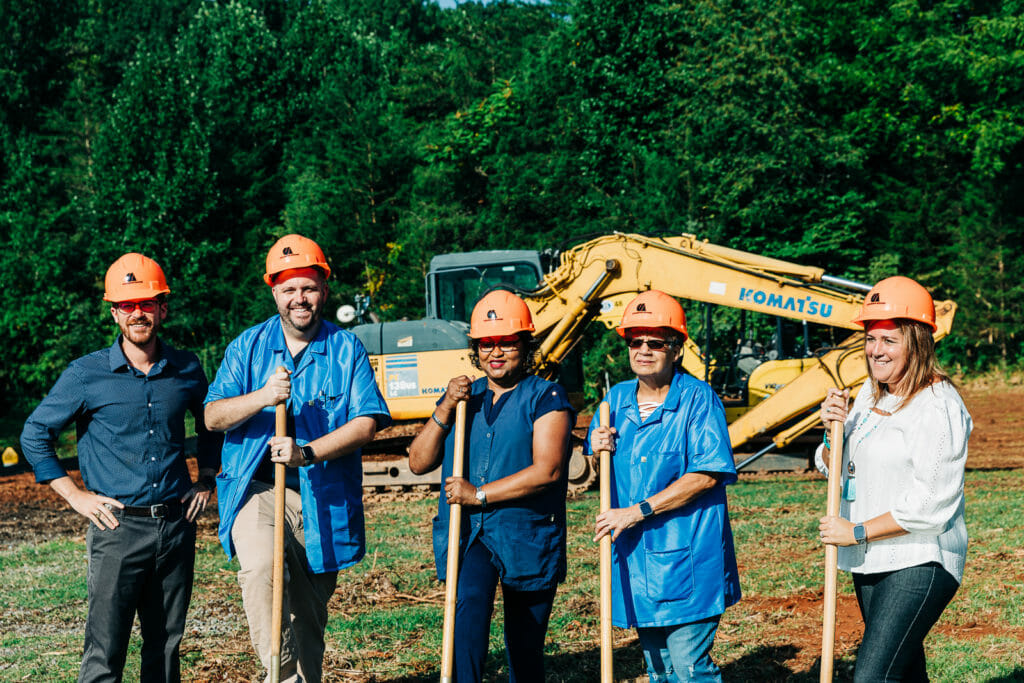
Employees of EDM pose for their recent ground-breaking event to expand their manufacturing site.
It’s not an easy business, says Georgeann Snead, President and CEO of the Lynchburg-based Electronic Design and Manufacturing (EDM). Unlike some manufacturers that turn out the same product over and over, EDM assembles specialized circuit boards for clients who don’t have the equipment and expertise to make them in-house. Their clients span a wide range of industries, and each run brings a new challenge.
“We’re not really running an assembly line,” explains Snead. “It takes a lot of sweat and heart to make this business work, and our employee-owners are critical to our success.”
Snead attributes the dedication of EDM employees to the ownership they feel over their work — and their ownership in the company itself. When EDM shifted its ownership structure in 1995, it joined the city’s large and growing cohort of employee-owned companies. In 2022, Lynchburg was ranked #7 for employee ownership by the marketing and certification program Certified EO.
“There’s a huge center of employee ownership here, and I think that’s by virtue of some service providers, such as attorneys and financial advisors, who really understand employee ownership,” Snead says. “When you see the benefits and are really passionate on the topic, you spread that message around.”
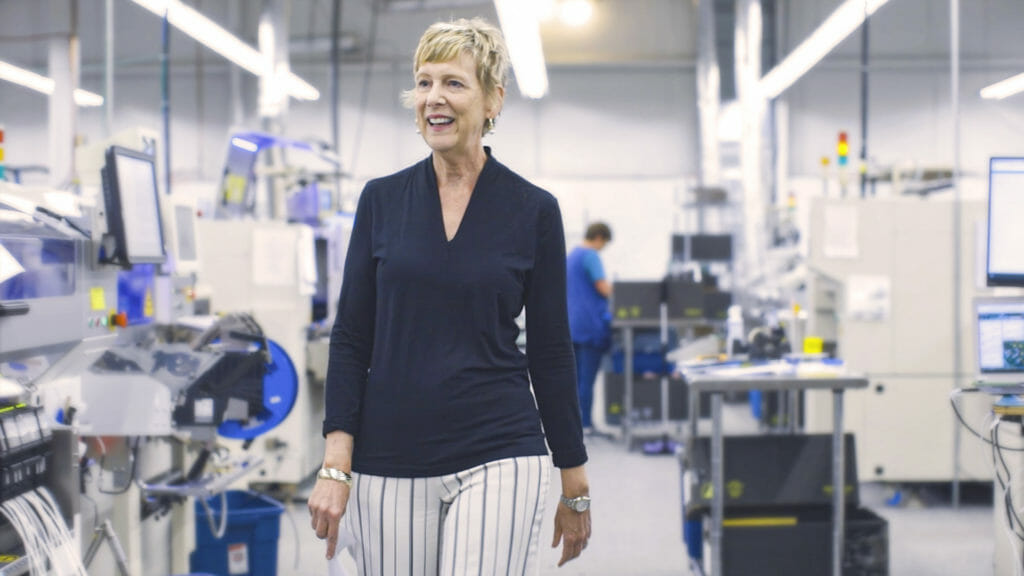
Georgeanne Snead, President and CEO of EDM
How it Works
Companies with Employee Stock Ownership Plans (ESOPs) give their employees an ownership stake in the company. That can happen in different ways, but in most cases, ESOPs are retirement plans where employees accumulate company stock through contributions made by their employer. As employees accumulate seniority with the company, also known as “vesting,” they acquire rights to the shares in their accounts.
When employees leave the company, the company buys back their shares at fair market value. As a result, many employees leave with retirement savings that bolster their social security income. “In the manufacturing space, wages are lower than some other sectors,” says Snead. “From a management seat, it’s gratifying to me that our employees have the opportunity to have a really good retirement and, without a lot of specialized education, are able to amass some wealth.”
According to Snead, that was the dream for Robert Roberts, EDM’s founder. “He believed very strongly that everyone should participate in the success and failure of the business. He didn’t have any children who wanted to take over, so becoming an ESOP made for a terrific succession plan,” Snead explains. “It helped the business tremendously to have employees with a real stake in how their company performed.”
Vested and Invested
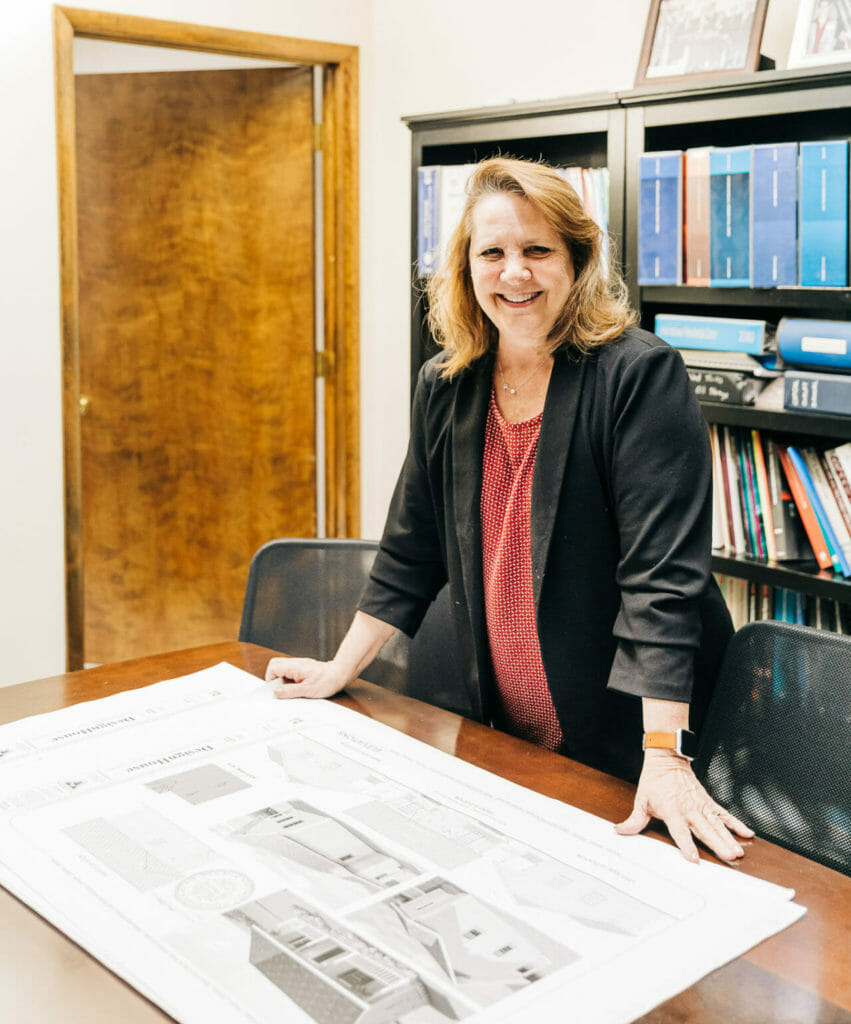
Anderia Thacker, Chief Financial Officer for Master Engineers has been with the company for 39 years.
Anderia Thacker works as Chief Financial Officer for another Lynchburg-based employee-owned company, Master Engineers and Designers. This year, the company celebrated its 40th anniversary; it’s been an ESOP for almost 20 years.
Thacker was a director at the time of the transition. “Prior to becoming an ESOP, we shared the profits with employees based on their level of commitment and effort. So the mentality that employees make the company was already there,” she says.
Master Engineers and Designers employees take pride in the fact that their accomplishments lead directly to the company’s success. “They’re not just working for someone else, they’re working for themselves — and they’re working for each other,” Thacker points out. “I think people appreciate that their hard work and commitment is acknowledged and rewarded.”
That’s how Thacker feels, too. Having been with the company for 39 years, she appreciates the ability to reap the rewards of a profitable company. “It’s helped my retirement grow, and I’ll be able to retire comfortably,” she says.
Thacker adds that Master Engineers and Designers employees are the company’s biggest asset. “If you have a change in ownership, transitioning internally instead of selling to an outside buyer puts the company back into the hands of the people that helped it succeed. That’s what makes it such a great vehicle for ownership.”
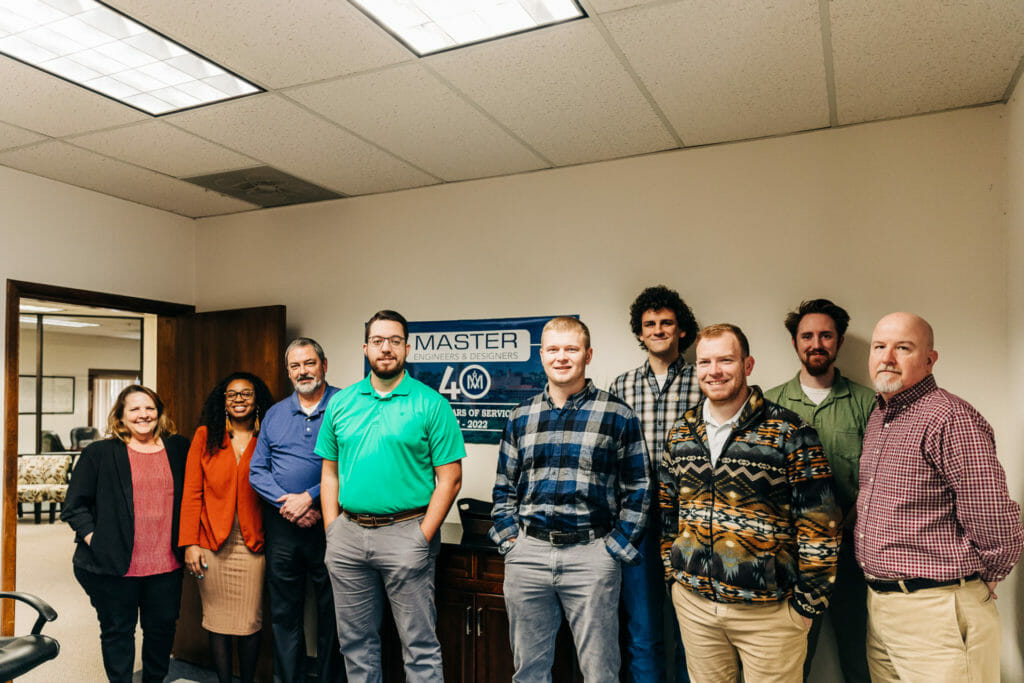
Master Engineers Employees
Vision to Reality
At the 120-year-old engineering firm Wiley Wilson, their official vision statement reads: “Make our employee-owners lives better so we can be a positive force in our communities, our country and the world.”
Connie Burnette, vice president and department manager for Human Resources, says that because of the company’s ESOP status, potential hires understand she’s not just talking the talk. “When we explain that you directly benefit when the company performs well, people really respond. It’s critical to find those candidates who appreciate working for an employee-owned company. It’s a unique culture, and our objective is to hire people who will fit and flourish here.”
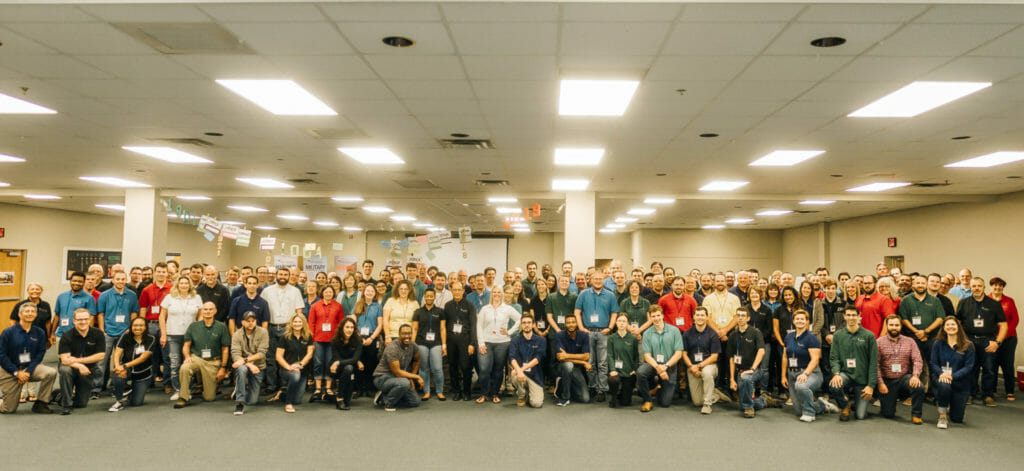
Wiley Wilson staff photo (from www.wileywilson.com
For Wiley|Wilson, the transition to employee ownership came about after an external party attempted to buy the company. “Before that sale went through, a group of senior executives got together and pitched the idea of becoming employee-owned,” Burnette says. “The external sale didn’t go through, and we became an employee-owned company.”
In 2020, Wiley|Wilson celebrated 20 years of employee ownership. Burnette says all employees are encouraged to think like an owner. “Because that’s what we are,” she adds. “When we meet our client’s needs, finish a big project or land a new client, we all feel pride and connected through this shared success with our clients.”
As with EDM and Master Engineers and Designers, Wiley|Wilson employees feel a common sense of accountability. “We have a vested interest in our company’s success, and that centers our work around a focused purpose,” says Burnette. “That shared goal pushes us to be our best.”

Robin Sutton Anders is a Greensboro, N.C.-based writer and the managing editor of Verdant Word Communications.